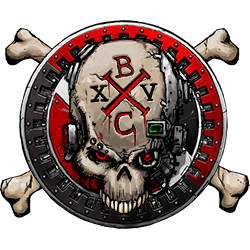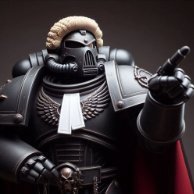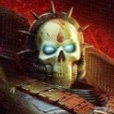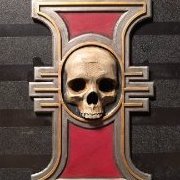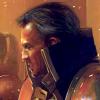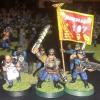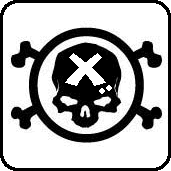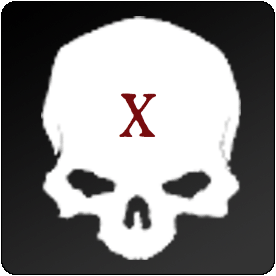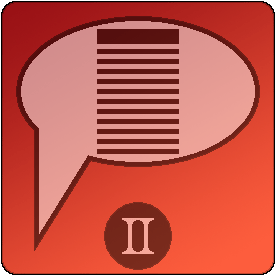-
Posts
1631 -
Joined
-
Last visited
-
Days Won
7
Roomsky last won the day on February 10 2024
Roomsky had the most liked content!
About Roomsky

Profile Information
-
Location
Canada, eh?
-
Pronouns
they/them
Recent Profile Visitors
1682 profile views
Roomsky's Achievements
-
 System Sound reacted to a post in a topic:
Upcoming BL Stuff 2025
System Sound reacted to a post in a topic:
Upcoming BL Stuff 2025
-
 Roomsky reacted to a post in a topic:
Elemental Council by Noah Van Nguyen
Roomsky reacted to a post in a topic:
Elemental Council by Noah Van Nguyen
-
 Roomsky reacted to a post in a topic:
Upcoming BL Stuff 2025
Roomsky reacted to a post in a topic:
Upcoming BL Stuff 2025
-
 Roomsky reacted to a post in a topic:
Harrowmaster sequel?
Roomsky reacted to a post in a topic:
Harrowmaster sequel?
-
Yes, a new novel is coming. The leak is from a German source, which is fairly common for Black Library: https://www.bol.de/shop/home/artikeldetails/A1077140238 Brooks' Alpha Legion is the highlight of his work, in my opinion. He reconciles basically every differing vision of the legion with apparent ease and doesn't descend into pure Alpha Legion memery. Honestly, I like Akurra simply because he's not a faceless Alpharius cosplayer.
-
 1ncarnadine reacted to a post in a topic:
Upcoming BL Stuff 2025
1ncarnadine reacted to a post in a topic:
Upcoming BL Stuff 2025
-
 DukeLeto69 reacted to a post in a topic:
Upcoming BL Stuff 2025
DukeLeto69 reacted to a post in a topic:
Upcoming BL Stuff 2025
-
Covers have really never been Black Library's strong suit. From the Scarface Marine to Eisenhorn's big floating head to Khârn just kind of standing there, I don't think there's ever been a true golden age. The cover of Daemonhammer is probably the most insulting compared to the original artwork it's aping. The Reverie, Requiem Infernal, the new Pariah and Penitent covers, and the Warhammer Crime range are the only real standout covers (for standard releases) we've had in like, a decade.
-
 Roomsky reacted to a post in a topic:
Upcoming BL Stuff 2025
Roomsky reacted to a post in a topic:
Upcoming BL Stuff 2025
-
 Roomsky reacted to a post in a topic:
Elemental Council by Noah Van Nguyen
Roomsky reacted to a post in a topic:
Elemental Council by Noah Van Nguyen
-
 Roomsky reacted to a post in a topic:
Elemental Council by Noah Van Nguyen
Roomsky reacted to a post in a topic:
Elemental Council by Noah Van Nguyen
-
 Roomsky reacted to a post in a topic:
Upcoming BL Stuff 2025
Roomsky reacted to a post in a topic:
Upcoming BL Stuff 2025
-
 Nagashsnee reacted to a post in a topic:
ARCHMAGOS GUY HALEY
Nagashsnee reacted to a post in a topic:
ARCHMAGOS GUY HALEY
-
 Roomsky reacted to a post in a topic:
ARCHMAGOS GUY HALEY
Roomsky reacted to a post in a topic:
ARCHMAGOS GUY HALEY
-
 Roomsky reacted to a post in a topic:
Dropsite Massacre - John French
Roomsky reacted to a post in a topic:
Dropsite Massacre - John French
-
 Roomsky reacted to a post in a topic:
ARCHMAGOS GUY HALEY
Roomsky reacted to a post in a topic:
ARCHMAGOS GUY HALEY
-
 Scribe reacted to a post in a topic:
Black Library Top 10
Scribe reacted to a post in a topic:
Black Library Top 10
-
Gotta be The First Heretic. Never loses is lustre.
-
 DarkChaplain reacted to a post in a topic:
ARCHMAGOS GUY HALEY
DarkChaplain reacted to a post in a topic:
ARCHMAGOS GUY HALEY
-
Wait. Wait wait wait. You're all saying Felix is the least interesting part of a novel? I'm shocked. Shocked!
-
 Ammonius reacted to a post in a topic:
Black Library Top 10
Ammonius reacted to a post in a topic:
Black Library Top 10
-
Here's some more if you're interested, OP, though the parameters were a little different: https://bolterandchainsword.com/topic/383290-if-you-could-only-keep-ten-40k-books-what-would-they-be/#comments Gosh, doing Heresy and 40k makes this so much harder. 1-4: The First Heretic, Betrayer, Master of Mankind, Echoes of Eternity ADB is my favourite Black Library author, TFH got me into reading again, Echoes is his magnum opus, and these 4 flow well into each other. Definitely the unshakeable core of my collection. 5: Space Marine Watson's best, and the most unfiltered look into the madness of 40k that still has a proper beginning, middle, and end. A classic. 6: Fire Caste Heart of Darkness meets 40k meets whole new levels of screwed up. An essential read. 7: Twice-Dead King - Ruin The best Necron book. I will not be taking questions. 8: Titanicus Such an amazing spread of characters, written with impressive verisimillitude. Love me some AdMech, too. 9, 10: Outgunned, Above and Beyond I'm sure more's coming, but this is an excellent duology on its own. Immaculately paced, and always fun.
-
 Tolmeus reacted to a post in a topic:
Why so expensive?
Tolmeus reacted to a post in a topic:
Why so expensive?
-
 Fire Golem reacted to a post in a topic:
Dropsite Massacre - John French
Fire Golem reacted to a post in a topic:
Dropsite Massacre - John French
-
 DarkChaplain reacted to a post in a topic:
Why so expensive?
DarkChaplain reacted to a post in a topic:
Why so expensive?
-
Black Library shortprints basically everything, and keeps very few books on their reprint schedule. It's purely scarcity, allowing people to list a lot of out of print items for ridiculous prices. It's one of the reasons scalpers flock to Black Library releases, it prints money if you can find the right buyers. Honestly you could probably sell a lot of your stuff for half the secondary market price and still make a profit on it. Personally I donate any physical copies I don't want to the local used book store.
-
No, I'm not sure what's up with that. The use of singular "they" (excluding usage for queer folks) has been debated basically since people started using it for an undefined person. My best guess is that French is using it to refer to a non-character, like a legionary who will not be named / only exists to fill out a scene, but that's pretty out of the ordinary and I don't think is considered "proper." Like, if someone's a complete stranger you might call them "they" even if their gender is obvious, but as above, isn't correct usage. Like: "The mailman came by today. They left you a package." The editors were asleep at the wheel, what else is new? Also I'm like 6 chapters in and really enjoying it. Feels like an early-heresy novel they forgot to release (in a good way.)
-
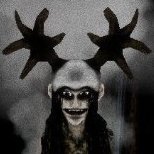
What Storyline Would You Like BL To Cover & How?
Roomsky replied to Felix Antipodes's topic in + THE BLACK LIBRARY +
I'm honestly no expert at unexplored elements of the timeline. Considering how much I enjoyed The Beast Arises, I'm totally on board for more expansion-of-title-only-events-in-the-timeline. If we wanted to sell primarch books I'd take whatever the War of the False Primarch is over Dark Imperium any day. Things I'd personally love to see: A redo of Isstvan III a la Dropsite Massacre. I rather dislike Galaxy in Flames. A proper account of Beta Garmon a la Dropsite Massacre The Scouring being willing to go hundreds of years (not necessarily with hundreds of novels) out so we can see all of the Primarchs vanish or die. I would like an account of Thessala that isn't a prologue to Dark Imperium, please. Our boy Thiel can be the POV. War of the False Primarch (always thought it would be fun if the primarch wasn't false at all, but the Imperium killed him because unlike 41k Guilliman, he didn't play nice with what the Imperium had become) Nova Terra Interregnum, natch Age of Apostasy, natch Badab War, Natch Wrath of Magnus - like a proper account, not just some Space Wolf tie-ins And as much as I'll never stop complaining about 8th ed: Fracture of Biel-Tan novel, a la Fall of Cadia Rise of the Primarch novel, a la Fall of Cadia TL:DR - Write more things like The Beast Arises. And if for some reason you don't do that, write novels about the new fluff in your codices. Whatever author is fine, except for Joe Bloggs, I hate that guy. -
Brooks is by his nature YMMV. But personally, I think his Alpha Legion work is his best stuff; he honours the legion's characterization in all its facets and does well with the mind-gamey nature of how they operate. Personally, I consider Harrowmaster to be the pinnacle of post-Heresy Alpha Legion writing.
-

Elemental Council by Noah Van Nguyen
Roomsky replied to LemartesTheLost's topic in + THE BLACK LIBRARY +
Despite generally giving books positive reviews, I still get bummed out by the constant diluting of Imperial identity, both in codices and novels. Due to the volume of it all, it's easy to forget we're in the Renaissance of Xenos fiction. Even if you don't vibe with Brooks' many works, we've still got Rath, Crowley, Beer, Flowers, and now Van Nguyen. Finally, finally, we have a meaty Tau alternative to the works of Kelly. No mustache-twirling Ethereals or Milquetoast protagonists to be found here! Van Nguyen shows off his writing chops instantly by having each of the POV characters organically grapple with their central personal conflict. You don't need to wait to find out why you should care, Ke's insecurities, Sei's antisocial tendencies, Orr's nature as a cynic who wants to be an optimist, and Sixes' strange existence are all laid out right at the start and mix together into an extremely entertaining junction of dysfunction as the plot progresses. All succeed and fail at being the idealized Tau in their own unique way. Yor'I is the cherry on top, displaying the perfect balance of inscrutability, practicality, empathy, and ruthlessness. You believe men and women like this are able to effectively lead a civilization. Do you want an in-depth examination of Tau culture, customs, triumphs, and challenges? Do you want an effective ensemble cast full of memorable characters? Do you want a novel challenge for the Tau empire to go up against? Do you want, as a bonus, a great Kroot POV? A wonderfully competent Imperial antagonist who nevertheless exhibits all the shortcomings of Imperial ideology? A generally cracking sci-fi read? Then this is the book for you. A Must Read for any Tau fan, for those curious about them, and for those who want to be won over to liking their faction. EDIT: Forgot to dog on the cover art. The dead horse is not yet a fine-enough glue. It looks terrible and does the book a disservice. -
I don't think it's great, but I do think it's much better than the OG Horus Rising art. It's not iconic, it's ugly. Don't @ me. Also, and I say this as someone who likes Prospero Burns better than A Thousand Sons: Why did they pick Prospero Burns over A Thousand Sons?
-
Another great reply! I love the point about the High Lords in this era having a paradoxical journey to the top; I hadn't thought of it like that before. Most are part of cutthroat organizations, with each step up being MORE power, MORE influence, MORE chances to demonstrate their skill and act unilaterally. And then they reach every politician's dream, a seat on the High Twelve, and are told "okay, now cooperate, stay in your lane, and by the way you won't have time to do half of what bought you this position." I don't buy that they're all competent pre-Guilliman in 40k, but that's a separate discussion. Now, not to be a Vangorich apologist, but he did point out that any assassinations on the High Twelve should be put forward by members of the High Twelve. It is their responsibility to identify problematic elements and have the assassins do some housecleaning. As it was, only the Inquisitorial seat spoke to him about it, and even then with an attitude of "killing them is the last resort." I'd argue that if the High Lords were capable/trustworthy, more would have made overtures to Vangorich for Lansung's and Verreult's removal. Even being theoretically capable in their own domains, they all saw repeat failures and used it to play power games instead of using the built-in function for replacement. Should Vangorich have acted? Yes. Is using Vangorich a duty of the High Twelve? Also, very much yes. I think that is a fair point against them that would, of all people, be pretty high on Vangorich's list of grievances, and a major knock against the idea they're suitable for the position. Juskina Tull, meanwhile, did take a swing and a miss to try and mitigate the crisis. She also did it to raise her standing in the High Twelve, a big plan designed specifically to make her officio the central, indispensable piece. Were I some sort of independent auditor of these actions, I would see a self serving, grand-standing, ill-thought-out action that got many of Terra's few remaining defences turned into red goo. A High Lord whose solutions are meant to put their star in the ascendant cannot be trusted in the role.
-
A good argument well made. I generally agree. Though, as a counterpoint, I'll bring up something you've posted in the past about everyone's favourite Black Library editor-turned-author: The High Lords, pre-Beheading, were responsible for the deaths of hundreds of billions. The books say so in many different ways; the Imperium wins the war when everyone is held at gunpoint and told to cooperate. They had 10 books worth of opportunities to get their :cuss: together, and only after someone competent is put in charge of wrangling them do some of them start to acknowledge their failures meaningfully and try to improve. It wasn't just Lansung and Verreault, the Senatorum allowed those two every opportunity to kneecap the Imperium because of their influence. Vangorich decided none of them could be trusted to put the good of the Imperium before the good of themselves, and on that point I agree with him. They all either caused the crisis, or enabled it. How many chances should they be given before they become passable at their jobs? Now, regarding Vangorich himself, I completely agree. HE says, repeatedly, it's his job to be the threat that keeps people in line. For all his smug superiority and stewing over the idiots surrounding him, he didn't act on the threat he's supposed to embody. On a good day, yes, he should act based on the general will of the High Lords. But here? When the rot has set in for all twelve? He's as guilty as the rest for failing to perform his function. Moreso, because his failure meant all of the High Lords almost sank the Imperium. - Interestingly, I think this series also comments on the nature of the Imperium Big E left behind. He did want humanity to rule itself in time, yes. But when he sat on the throne, The Imperium was still very much a society designed to be led by an individual with absolute power. His planned reforms, if planned they were, never saw proper implementation. You can't just slap a council where there was an Emperor and call it a day. M32 isn't humanity ruling itself, it's humanity ruled by Terra, and Terra has at least twelve conflicting split personalities all vying for supremacy. On top of that, historically, many new Emperors see the most beneficial parts of their reigns right at the start, where they counteract the really obvious flaws of their predecessor. These elements combined mean Vangorich, holding absolute power with the sterling qualification of not being completely insane, couldn't possibly have done worse than the High Twelve. He had 20/20 hindsight and an empire designed for unilateral rule. Those decades of improvement were essentially guaranteed, not the rare product of the right man finally being in control.
-
The Beast Arises - The Whole Thing This re-read has been quite enlightening. My opinion on basically every book changed this go-round, some for the better, some for the worse. Contrast my original post to this effect many years ago, I view this Grand Experiment as a success. Perhaps the most successful of all of Black Library's multi-author endeavors. I like Dawn of Fire more than most, but it suffered from each book being too much of an island. This is something I praised in the past, but that's because I thought the final book would be a culmination of all the running threads, instead of the lackluster implosion we ended up getting. The Horus Heresy is famously a giant mess. Frankly, all it really has over this series is several amazing authors whose islands of quality stand tall in the sea of slop. The Beast Arises (TBA) has continuity errors, pacing issues, some canon defilement, and more than a few asspulls. The Heresy makes TBA look positively tightly written by comparison, and ranks those same flaws up to eleven. TBA is early-Heresy hype front to back. We follow the same cast, await each new twist and turn, and develop a single story. Sure, it's harder to ignore the bad stuff, but TBA's bad stuff keeps the ball rolling in ways the Heresy often doesn't. There's no character assassination. There's all of one change to existing canon that isn't just expanding on something that had barely been touched before (the origin of the Deathwatch.) Authors aren't fighting over how a certain thing should be portrayed, or brimming with self-importance because they got to write a foundational element of the setting's history. It's easy to forget projects like this can actually work, as a complete package. But because there's 3 attacks on Ullanor, people treat this as the worst thing since Goto. Yes, that was a poor choice. But again, The Heresy has several choices I'd argue are significantly worse. Yet the "Heresy novels were a mistake" crowd remains a minority, and TBA is a black mark on Black Library publication? Character-wise, this series also kicks ass as far as Black Library publications go. There are better characters in the Heresy, it's true. Like I said, the Heresy had a bunch of great authors TBA did not, and it's those great authors who, shock of shocks, write the best characters. But in terms of the core, everyone's-hands-in-the-pot cast? Vangorich, Koorland, Wienand, Veritus, Thane, Zerberyn, Krule, Lansung, and Kubik are all great. What even is the Heresy's core cast? Loken? Don't make me laugh. Keeler? Boring and inconsistent. Horus? Ironically, not at all. Garro? End me now. Vangorich leaves them all in the dust with ease. Maybe the 19 primarchs were the main characters? Again, this is just the series' best authors doing all the work. Vangorich beats most of them anyway, in my opinion. Unlike the primarchs, he doesn't act like a different person every time he shows up. Drakan Vangorich is a treasure. He's amusing, he's complex, he's the bomb under the table, and he justifies every iota of frustration the readers feel regarding his peers. And he's the main character of the series' best plotline. The series deserves better; it deserves its flowers. But boy, it also deserves its lumps. "The Beast Arises" has several meanings, but the primary one refers to, you know, The Beast. That great, green existential threat to the Imperium. The leader of the faction whose colours and sigil were on the spines of these books. This is "the ork series," and it completely drops the ball in that regard. Yes, they're intimidating. Yes, they facilitate a lot of good drama, as has been discussed in this thread already. Yes, some interesting ork lore comes out of all this. But these orks are also boring and they suck. We have no ork POVs. We have a single meaningful conversation with an ork, who is never seen again. Yet we keep battling them, and battling them, and battling them. It's frankly a triumph the series stays entertaining when all we're doing is fighting the same green tide over and over again. A soulless killing machine, if involved in many engagements, needs to become shorthand for death after a while. Characters encounter the antagonist, and you know with certainty that they will be dead shortly. It can't be a protracted act of epic defiance every time the soulless killing machine shows up. A Slasher film with 10 kills would not be improved by each kill including protracted CQC engagements with the killer. If you aren't playing up the fear of a faceless enemy, all you're left with is a characterless void (read: boring.) In a series made outside of Black Library, I don't think any author would have chosen this many detailed engagements with the unrelenting, inhuman force. The POV characters would just be dead. And if those engagements must be there, if each book must have a big epic ork fight, then give us a window into why we should care about these bloody orks. Have The Beast get more than a handful of stock ork phrases. Tell me about the ork ambassadors. Do they have independent opinions? Are they shunned by the combat caste? Haas was their prisoner for a while, have orks say something interesting in her presence. Give me something, anything! And that doesn't even account for all the individual mis-fires. 6 Beasts, and they do nothing with it. The Beast cuts Ghazgkull's legs out from under him, rather deflating his image as the biggest, baddest warboss of all time. None of the authors seem to agree on precisely how advanced these orks are, either, and that starts as early as book 2. It's a little maddening. A bitter aftertaste behind everything the series excels at. I'm glad Brooks and Rath blew the doors off proper xenos fiction, because holy hell, the big ork series wasn't even about orks! They just happened to be the baddy for what is, frankly, an Imperium story. I like Imperium stories, they are my favourite variety of 40k stories, but come on. What do we tell Ork players who are new to the literature? Go read the Imperium series pretending its about orks? Not great. And there's certainly more to whinge about. The founding of the Deathwatch feels shoehorned in and barely utilized, on top of just being worse than the original fluff. Several characters are introduced and then just disappear next book. It's a roll of the dice whether conflicts resolve naturally, or just terminate because the author said so. Common pitfalls of a multi-author series. But. But! Despite allllll that, the series is still a lot of fun. Every book has genuinely good stuff in it. It has momentum, it has fun characters, it spits in the face of all that is natural and keeps the constant ork-fighting moderately entertaining. It's what I'd like out of more 40k series, the exploration of the era was fascinating, and it never sacrifices the energy of 40k throughout. It never reaches the Heresy's highs, but man, it never brushes those Heresy lows. It ends the age of Imperial heroes! It's another step toward the ultimate grim darkness! It's a decent series that was exciting despite being set in M32! I don't want more of "what happens next" in the 42nd millennium. I want more stuff like The Beast Arises.
-
The Beheading - Guy Haley This book is Haley's greatest achievement. Flesh and Steel probably beats it for overall quality, but this is the far more impressive book. It does damage control for the series. It ties every loose end organically. It's a satisfying conclusion. It's got fun reveals. It's a damn good book. And it's shorter than Flesh and Steel while doing all that! The Beast is dead, and with it, the less interesting half of these novels. Haley's one boon in tackling this book is that it's about the stuff basically everyone wanted more of. For those knowledgeable in 40k fluff, they knew this was coming. For those going in blind, I imagine they were wishing for this outcome the whole series. Thane dresses down the incompetent High Lords. Then, shortly after, Vangorich has them all killed. Sweet, sweet catharsis. This is a book of ideological debate, of Imperial realpolitik, of every character getting a cold splash of reality after a series of "things will be better next time." Thane believes astartes have no role in Imperial politics, and that costs him the lives of hundreds of space marines, along with what seems like a significant amount of the Terran population. Vangorich believes cutting through the squabbling is worth any price, and doing so removes any checks on his own shortcomings. The High Lords are variously dispatched in ways fitting of their stations and crimes. Zerberyn, ever practical, finds that loyalty can't be maintained in the face of unrelenting pragmatism. The final battle was last book, but each character reaches the turning point in their development here. Basically all of them are found wanting. It's fantastic. It does all the heavy lifting the previous book was missing, and gives us a finale more appropriate to the preceding series than Silent King, Hand of Abaddon, or The End and the Death. And that's so refreshing, after experiencing Abnett's Wild Ride and Dawn of Fire's fizzling out. Complaints are minor. The finale of this book, more of an epilogue, could have had more time to develop. There was no space for it here, obviously, so a restructuring of the series would've been needed. But Vangorich, finally getting everything he wanted, having a great reign and then slowly losing his mind? I would have liked to read that, actually. But like I said, it's more of an epilogue. Vangorich is the story's hero, he wins. The senatorum cheers, many decades of positive reform are ahead, and the monsters responsible for the crisis are dead. But this is 40k. It all runs to seed eventually. Absolute power and all that. Washes the taste of book 11 out of your mouth and makes you glad you stuck with the series. What better ending can one ask for?
